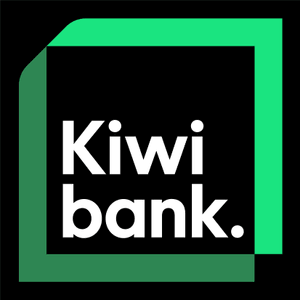Credit card spending in the last three months may have rebounded, but the gap between actual and inflated spending is widening. Kiwibank economist Mary Jo Vergara explains what’s going on.
As borders open and the pandemic begins to have less of a hold on Aotearoa than it once did, New Zealanders are starting to spend again. After an unprecedented two years, hotels, cinemas, restaurants and the wider travel industry have recently seen a much-needed consumer spending rebound.
Covid-19 continues to offer an explanation for this rebound – Kiwibank electronic card spend rose 7.1% in the June quarter, bouncing back from the 9% drop in the omicron-riddled March quarter. The rebound was supported by Aotearoa moving into the orange setting of the Covid traffic light system in April, just in time for the mid-year run of public holidays, which this year included Matariki for the first time. As a result, restaurant spending rose 16%, spending on hotels and accommodation increased by nearly a quarter and money spent at the movies and on events rose by the same amount.
But the easing of pandemic restrictions doesn’t fully explain the bounce back. Inflation is also working behind the scenes distorting spending data and artificially propping up the value of transactions. Behind that data is insight on just how expensive it has become to live in Aotearoa – everything from the price of cheese to the cost of petrol has had an impact on New Zealanders’ wallets, and the cost of living doesn’t look to be dropping any time soon.
Adjusting for the rise in consumer prices in the June quarter, consumer spending rose by 5.7%. The gap between nominal and real spend is widening, and the slower rise in New Zealanders’ actual spending may suggest they are tightening their purse strings. Kiwibank credit card data shows the growth in dollars spent is outpacing the rise in the volume of transactions made – in other words, New Zealanders spent more money in the last three months but they tapped, swiped and inserted their cards fewer times.
In the June quarter the spend on petrol rose 5.6%. However, the number of visits to the petrol station dropped 7.5%, compared to the previous three months. In contrast, more New Zealanders chose to catch the bus, train or ferry to get around – public transport spend jumped 21%. Given the sky-high petrol prices, and the government’s half-price discount on public transport fares (now extended to January 31, 2023), it’s not surprising people are substituting their vehicles for a cheaper alternative.
What New Zealanders did spend more money on was services rather than goods – a reversal of the situation in 2020 when locked-down people with a bunch of savings in hand and access to cheap money spent up large on renovations, home furnishings, devices and gadgets. As the economy has reopened, services are being brought back to life. Take travel, for instance – New Zealanders have taken advantage of the open borders. Compared to a year ago, flight booking spend rose 107%, a decent chunk of which seems to be on international travel, based on a rebound in credit card spending overseas. The idea that New Zealanders are booking one-way tickets out of the country was right.
That’s not to say we aren’t spending money on goods – retail spend still rose nearly 6% in the quarter – but there’s less appetite among consumers to spend large on big-ticket items (hardware spending fell 5%, housing-related spend dropped 1.5%, for example). Especially when there are more immense forces dampening consumer confidence.
A cooling housing market, with prices down 6% from their November peak, and tighter lending rules don’t foster increased borrowing and spending. The official cash rate sits at an almost seven-year high of 2.5%, and yet further rate hikes are forecast, meaning mortgage rates have further to climb. Add into the mix the expectation that living costs, from food to fuel, health to housing, will keep rising in the near-term. Grocery lists will shorten, household budgets will tighten and people will start cutting out nice-to-haves as a result.
The effects of inflation – now at a 32-year high of 7.3% – shone through in the June quarter, confirming assumptions about how the economy is changing. Given inflation should remain elevated, the artificial boost in numbers should also remain. But it wouldn’t be a surprise if people started substituting out their barista-made long black for a homemade coffee in the morning.
The content was created in partnership with Kiwibank.
Kiwibank’s team of economists can help you make smarter decisions for your business. With their expert insights and forecasts your business is in safe hands with Kiwibank.
To get tailored business advice you can trust, try Kiwibank’s Business Banking. Find out more here.


